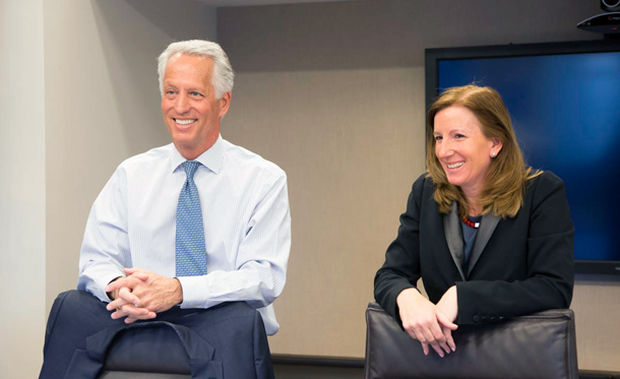
As Chief Talent Officer of Deloitte, LLP, Mike Preston realizes it takes more than simply offering wellness plans. In order for employees to thrive in the workplace, you must find the right balance between work and family—and that starts with leading by example.
“It’s really about how the leaders show up every day,” Preston says, “and what they do to be transparent and authentic about this notion that we can have a world where we contribute to really complex problems—with our clients or in the community—while at the same time having a life. It’s about the culture more than it is about the programs.”
Numbers tell the story
Preston believes employees need more than flexibility and paid vacation days. Companies must create an environment giving workers permission to use them.
In October, 2015, Deloitte conducted a public survey of more than 1,000 full-time employed adults to understand what challenges employees face regarding well-being, and how organizations can do a better job of addressing these concerns.
The Workplace Pulse survey found 33 percent of those interviewed don’t feel comfortable taking time off or going on vacation. Additionally, 32 percent say they’ve consistently placed work over family or personal commitments in the past six months. Only 10 percent discuss personal obligations with direct managers.
Millennials were more likely to feel that knowing more about a CEO’s experiences in managing work and life would have a positive impact on their views about the workplace. They were also more inclined to prioritize a personal commitment over work if they saw their peers, managers or CEO doing the same.
“‘We think it’s important that we focus on developing leaders not just at work, but in their personal lives and in their community.'”
A personal touch
Deloitte CEO Cathy Engelbert, who oversees the largest professional services firm in the nation and is responsible for 70,000 professionals in nearly 90 U.S. cities and India, believes setting the right tone is crucial. Spending time with employees over lunch or having a friendly conversation goes a long way.

“Our highest-performing teams are the ones who are having a little bit of fun while they’re working,” says Engelbert. “It comes down to sharing your personal stories, being that role model and driving that culture throughout the organization.”
Custom concern
It’s important to recognize employees’ specific needs when it comes to taking time off, whether it’s to care for a newborn or an elderly parent.
“One of the things that’s going to become more common is looking at leave differently,” says Preston, who also encourages giving employees access to financial planners and providing them with workout equipment to help them stay in shape. “Companies should remind workers to get a good night’s rest, enjoy time at home and not feel pressured to respond to non-urgent weekend emails.”
He says it’s all about finding that rhythm: “We think it’s important that we focus on developing leaders not just at work, but in their personal lives and in their community. We want the whole person, because we know they’re going to be more productive, and if they’re more productive, our business is more successful.”
From: Media Planet
